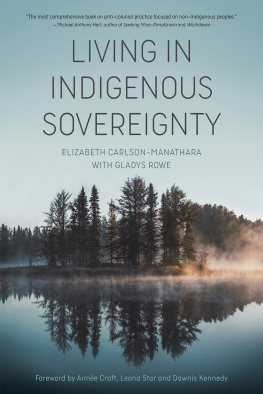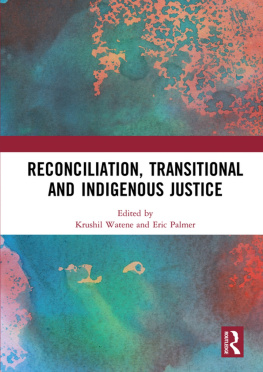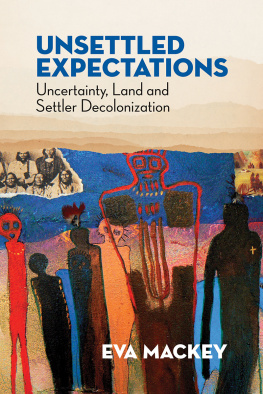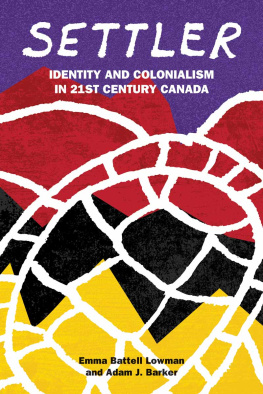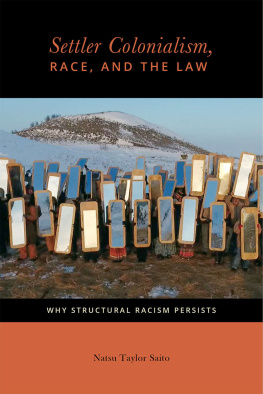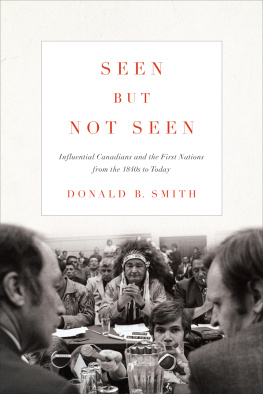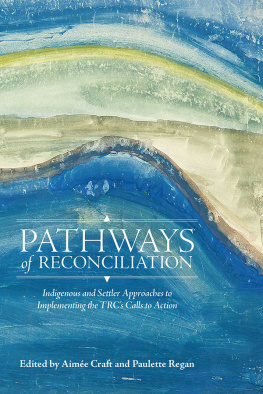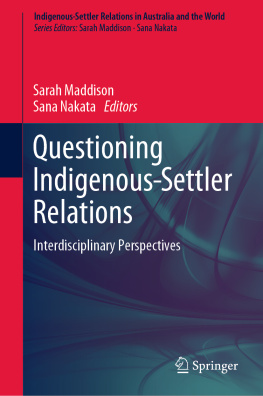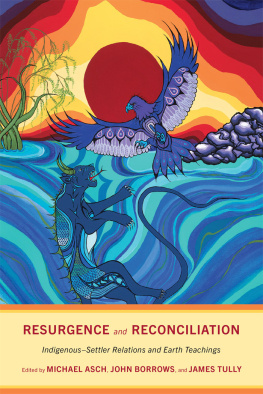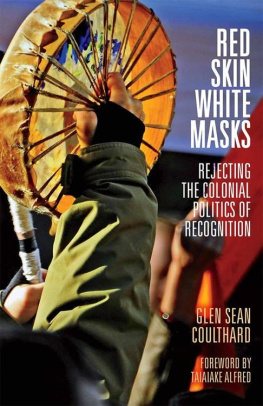Living in Indigenous Sovereignty
Living in Indigenous Sovereignty
Elizabeth Carlson-Manathara with Gladys Rowe
Fernwood Publishing
Halifax & Winnipeg
Copyright 2021 Elizabeth Carlson-Manathara and Gladys Rowe
All rights reserved. No part of this book may be reproduced or transmitted in any form by any means without permission in writing from the publisher, except by a reviewer, who may quote brief passages in a review.
Editing: Lisa Frenette
Cover design: Tania Craan
eBook: tikaebooks.com
Printed and bound in Canada
Published by Fernwood Publishing
32 Oceanvista Lane, Black Point, Nova Scotia, B0J 1B0
and 748 Broadway Avenue, Winnipeg, Manitoba, R3G 0X3
www.fernwoodpublishing.ca
Fernwood Publishing Company Limited gratefully acknowledges the financial support of the Government of Canada, the Canada Council for the Arts, the Manitoba Department of Culture, Heritage and Tourism under the Manitoba Publishers Marketing Assistance Program and the Province of Manitoba, through the Book Publishing Tax Credit, for our publishing program. We are pleased to work in partnership with the Province of Nova Scotia to develop and promote our creative industries for the benefit of all Nova Scotians.

Library and Archives Canada Cataloguing in Publication
Title: Living in Indigenous sovereignty / written by Elizabeth Carlson-Manathara and Gladys Rowe.
Names: Carlson-Manathara, Elizabeth, author. | Rowe, Gladys, author.
Description: Includes bibliographical references and index.
Identifiers: Canadiana (print) 20210152273 | Canadiana (ebook) 20210152338 | ISBN 9781773632384 (softcover) | ISBN 9781773632636 (EPUB) | ISBN 9781773632643 (Kindle) | ISBN 9781773634517 (PDF)
Subjects: LCSH: Indigenous peoplesCanada. | LCSH: CanadaRace relations. | LCSH: CanadaEthnic relations. | LCSH: Decolonization.
Classification: LCC E78.C2 C37 2021 | DDC 305.897/071dc23
Contents
For those who have gone before, including Byron Matwewinin, Troy Fontaine, and Dr. Nicholas Cooper-Lewter, who contributed to my journey in immeasurable ways, and who I miss dearly.
For the future generations including our twenty-three nieces and nephews: Dwayne, Sammy, Travis, Michelle, Rosemary, Kiniw, Jesse, Dylana, Thomas, Maria, Roseanne, Willis, Wabun, Leif, Bryn, Annemary, Jaedyn, Soren, Joseph, Susanne, Lars, Kaleb, and Immanuel.
Foreword
Aime Craft, Leona Star, and Dawnis Kennedy
As we write this, the world feels like it is burning around us. From the destruction of property and physical violence by non-Indigenous fishermen toward Mikmaw lobster fishermen in Mikmaki (literally burning buildings to the ground), to the racist and violent death suffered by Atikamekw mother Joyce Echaquan in a Joliette, Qubec, hospital, to the continued forcible removal of Indigenous people who occupy their territories and protect their lands and waters against industrial commodification and environmental degradation in the form of pipelines (Unistoten), land development (Six Nations of the Grand River), fracking (Camp Morning Star at Hollow Water First Nation), hydroelectric dams (Tataskweyak Cree Nation and the Jenpeg Dam), forestry (Grassy Narrows Blockade) and the list goes on
The individual and systemic racism faced by Indigenous people in Canada is alarming. And it does not appear to be getting better, even in an era of reconciliation and the real systemic change called for by the Truth and Reconciliation Commission of Canada ( trc ). We repeatedly hear the call for radical change in Indigenous relations in Canada echoed; from almost a decade ago by the Idle No More movement to more recently, when Indigenous people in Canada were marching in the streets for Tina Fontaine, Colten Boushie, and Cindy Gladue. Hearts continue to break with recent events. Dreams of nation-to-nation politics in Canada continue to fade.
At the heart of this is the denial of basic human rights, the violations of sacred treaty relationships and the disregard for constitutionally protected rights, all marked by institutionally accepted violence. This is an assault on the stated values of Canada as an international human rights defender. Outrage has been met with inaction, which in turn, sparks further indignation. Who amongst Canadians is prepared to sacrifice to protect human rights to the point of being arrested, criminalized, or ostracized for their stances against the violence done to the land and the people?
This book takes up one of the most challenging questions that Canadian society faces today: how to navigate the ongoing relationship between Indigenous people and settler Canada, and particularly the role of non-Indigenous settlers in redefining that relationship. There is no singular answer to this question and while the challenge remains daunting, this book beautifully weaves theory and scholarship with first-person narrative to provide an embodied response towards Indigenous sovereignty.
Too often the burden of decolonization is taken up by Indigenous people, or in effect placed on Indigenous peoples shoulders. Turning the gaze not away from, but rather in support of Indigenous Peoples, this book engages with what it is to be a settler-ally in all forms and based on the lived experience of a variety of non-Indigenous people. This book provides a range of illustrations of the multiple paths that orient toward Indigenous sovereignty and tackles directly what Indigenous people have asked of us.
The purpose of this book is to critically engage with how to not only think differently but to also be and do things differently. Elizabeth (Liz) Carlson-Manatharas work is immensely valuable; her research and depth of scholarship, blended with her ability to ask difficult questions while listening honestly and gently engaging is exactly the type of approach required to get to the heart of the matter. All three of us have met Liz through her participation in ceremonies and other community activities and we have first-hand exposure to her kindness, reciprocity, and attentiveness to being a good relative. These same qualities are reflected in the substance and form of this book, including the shared authorship of chapters, the attention to narrative and authenticity, and the assurance that relationships remained good and that people were listened to throughout the research and publication process.
In this time of an international pandemic many of us are contemplating how we continue to advance reconciliation, to develop and maintain mutually respectful relationships ( trc 2015), and to create the space to reset the relationships. One key element of this redefinition is proposed as a return: a return to awareness that Indigenous Lands have their own stories, relationships, responsibilities, and laws, all of which have been practised by Indigenous people since time immemorial. For Liz and her collaborators, the focus has narrowed to understanding what land back could and should look like.
Each of us is called upon regularly to answer these questions: what is it going to take to reach into spaces of reconciliation? How can non-Indigenous or settler-allies do more or do better? Were grateful to this book as a resource for them to be able to begin or further their journeys into their support of Indigenous Peoples and sovereignties.
Acknowledgements
Boozhoo Nindinawemaaganidog. Thank you for your help with this, and with everything.
I acknowledge the Anishinaabe, Muskeko-Ininiwak, Dakota, Nakota, and Red River Mtis peoples as the sovereign peoples of the Treaty 1 lands where I lived and when the dissertation on which this book is based was written. I acknowledge the Anishinaabe people of the Robinson-Huron Treaty of 1850, where this book was completed. This work has taken me into a deeper understanding of what it means to live in your sovereignty. I acknowledge the hundreds of years of fierce and loving resistance and resurgence of the Indigenous Peoples of these lands. I am grateful to have been connected with amazing and vibrant activist communities in Winnipeg and in Sudbury, and I wish to acknowledge the kindness, care, rage, beauty, and struggle of these communities, as well as the contributions they have made to this work.

